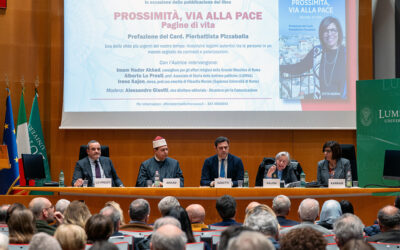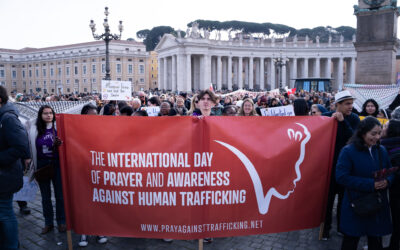
A book written with the heart. The testimony of one of the first young women from the city of Trent, Italy, who followed Chiara Lubich in a spiritual adventure that has gathered in millions of people. Vittoria Salizzoni (Aletta) was one those first companions along with Dori Zamboni, Graziella De Luca, Silvana Veronesi, Bruna Tomasi, Palmira Frizzera, Gisella and Ginetta Calliari, Natalia Dallapiccola, Giosi Guella, Valeria Ronchetti, Lia Brunet and Marilen Holzauser.
 Aletta, as she was popularly known, lived with Chiara at the dawn of the Focolare. Her recollections – some published here for the first time – along with excerpts from talks and presentations, describe the exceptional adventure she lived; also her share for over twenty five years in building the Focolare Movement in the lands of the Middle East.
Aletta, as she was popularly known, lived with Chiara at the dawn of the Focolare. Her recollections – some published here for the first time – along with excerpts from talks and presentations, describe the exceptional adventure she lived; also her share for over twenty five years in building the Focolare Movement in the lands of the Middle East.
She shares her memories in a language that is simple and spontaneous not with the intention of sketching a history of the Movement, but with the desire of conveying the courage and vitality that accompanied the events. Now, at the age of 87 when asked how she feels, she responds: “I feel rich. . .”
We publish one excerpt from the book, Aletta racconta. . . una trentina con Chiara Lubich, Citta Nuova’s Per Series, in which she tells of her years in Lebanon during the war (1975-1990).
“In the midst of the hatred and the bombs we believed in the Gospel. In the midst of wounded and dead there was an oasis of people striving to live mutual love and communion of goods not only among themselves, but also with others, with Muslims as well.
 There was so much mutual support, a veritable competition in offering flats, for example, and dwelling places to people with nowhere to stay. Many families opened their homes to those who were living in the most dangerous regions. Then there were some who had houses in the mountains or in secure locations, who offered hospitality to the ones who were left homeless.
There was so much mutual support, a veritable competition in offering flats, for example, and dwelling places to people with nowhere to stay. Many families opened their homes to those who were living in the most dangerous regions. Then there were some who had houses in the mountains or in secure locations, who offered hospitality to the ones who were left homeless.
When food supplies were scarce those who had bread distributed to those who had none; the same with water. The ones who went to collect water for themselves said to the others: “Give us your water containers and we’ll fetch some water for you.” And this meant standing for many hours at a fountain, always fearful that a bombardment could happen at any moment.
There were certainly experiences of loss, but our spiritual support for one another seemed to lead to material assistance as well. Everything grew from there and not like a mutual aid society but as a society in which the Gospel was being lived out.
We were all living in the same conditions, and so the only thing we could do was love, and the war could never prevent us from doing that – on the contrary! You could even say that it was forming us. We felt the continual support of the Focolare and the nearness of Chiara Lubich who followed us from afar, during those very difficult and troubling situations in Lebanon.”




0 Comments